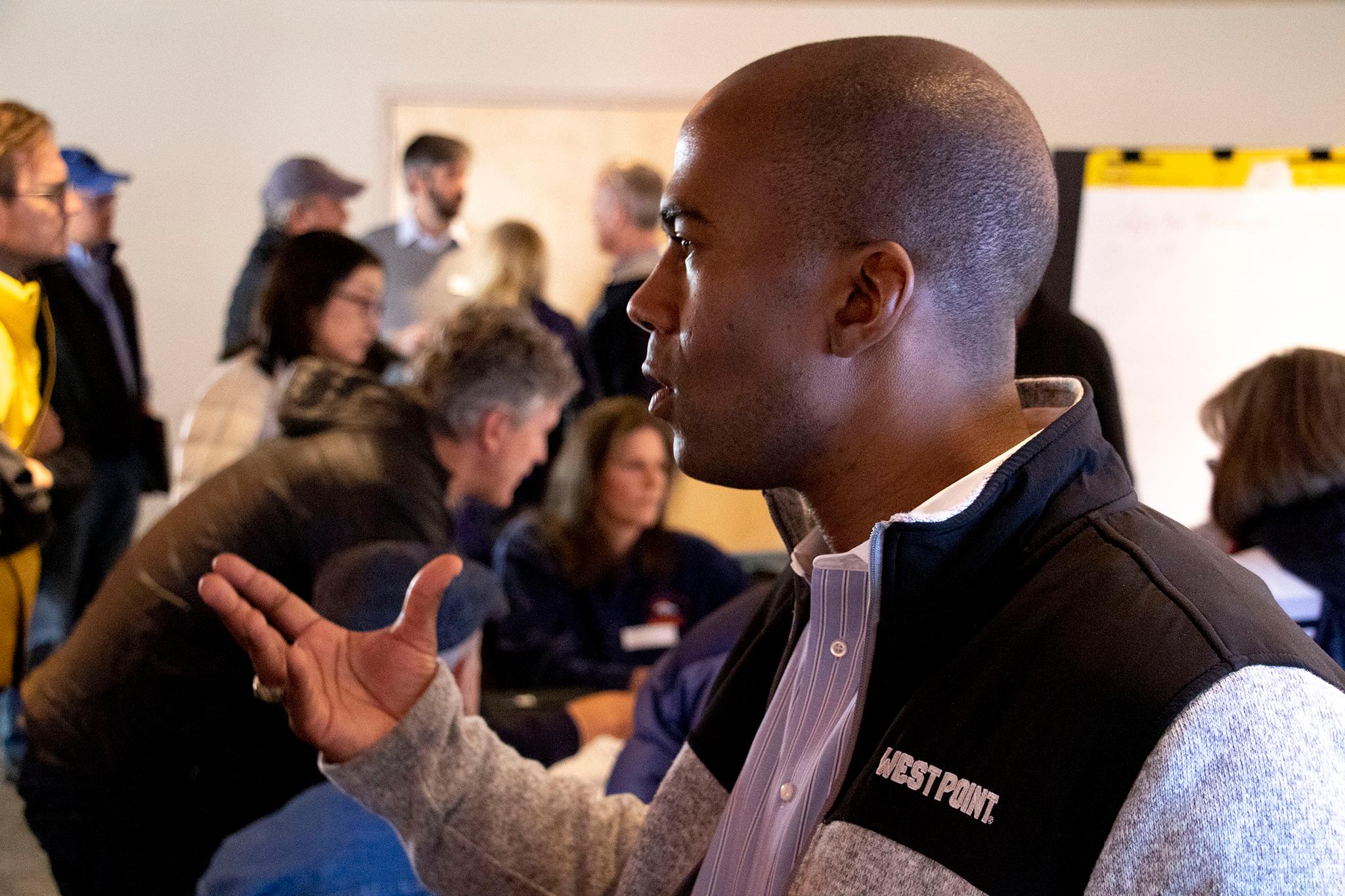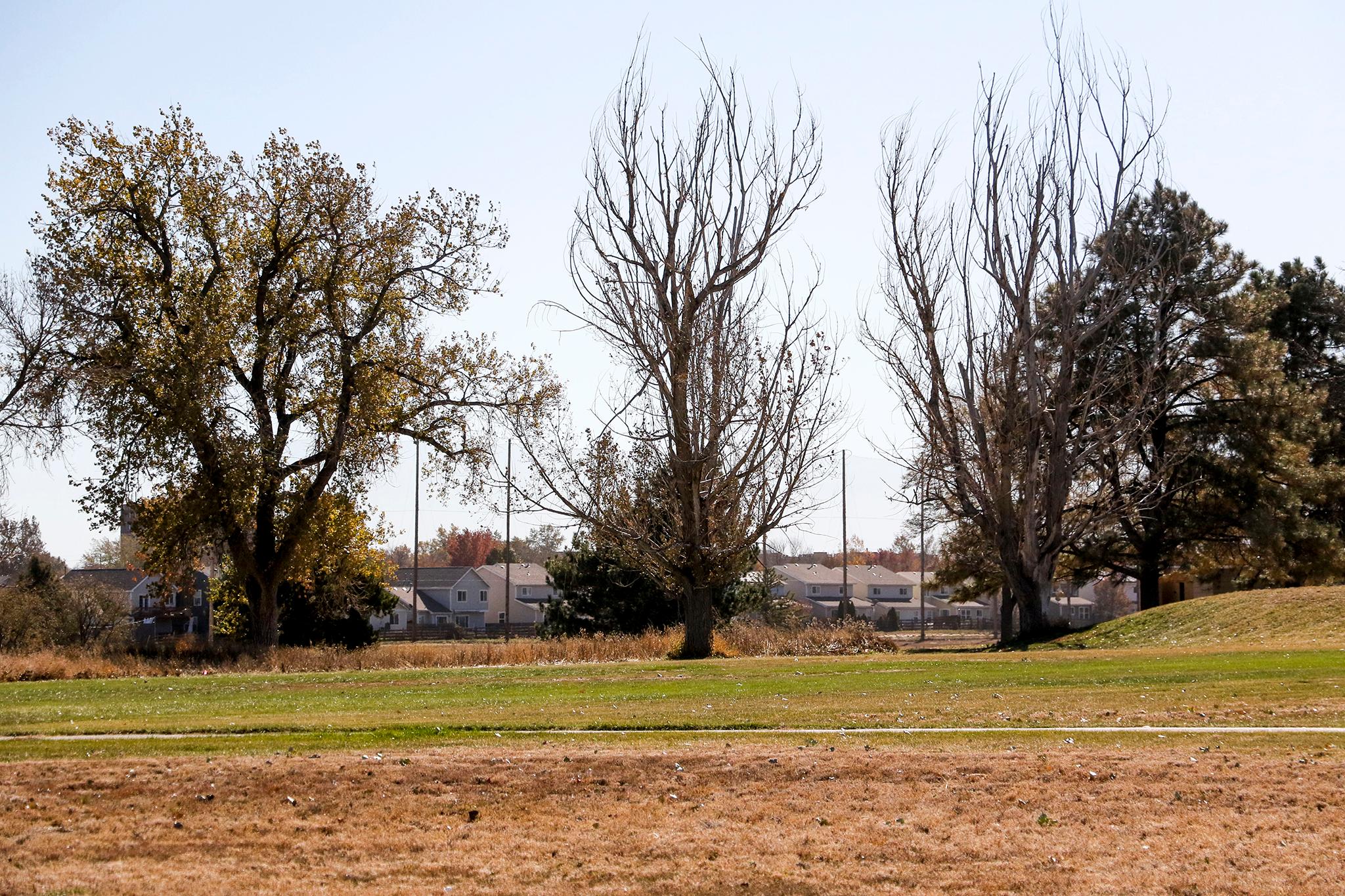The Denver City Council on Monday killed a proposal that would have let city voters decide the fate of a former golf course in Northeast Park Hill.
Councilwoman Candi CdeBaca sponsored the failed initiative, which arose from a fight for the future of the defunct Park Hill Golf Club. The valuable land, owned by developer Westside Investment Partners, equates to 155 acres of grass and trees along Colorado Boulevard between 35th and 40th avenues.
Its deed includes a conservation easement that legally preserves the land as a golf course, according to the City Attorneys Office. CdeBaca's ballot measure aimed to give city voters the power to ban homes and businesses on that land and any other green space protected by a city-owned conservation pact.
Monday's vote cracks open the gate for development, but a $6 million settlement last year ensures a public process and approval from council prior to any building. A majority of council members will have to vote to lift the conservation easement, rezone the property, and approve a small-area plan before bulldozers dig in.
Some people want to see the land rise into a walkable district of homes, businesses and parks anchored by the nearby 40th and Colorado RTD station. Others want to see the land preserved and used as a public park, which would also require a vote by city council to change the easement.
Race and wealth played central roles in a debate before and during the council's weekly legislative meeting. Councilman Chris Herndon, who represents Northeast Park Hill, said the measure would cede control of a Black neighborhood's asset to people who don't live there.
"There is not another issue that I'm aware of where we are taking something that affects one particular neighborhood and sending it to the vote of the people," Herndon said. "So for us to turn around and say we're going to change policy and let a particular community -- and African-American historical community -- that we know has been under-served for too long ... That community should decide what happens with that."

CdeBaca characterized the move as trading green space for housing and commerce so close to a newly widened Interstate 70 that it would amount to environmental injustice. Her ballot measure would have defended minorities by curbing development that could potentially displace low-income residents and people of color, she said.
"They are being pushed out as the neighborhood as it is right now -- and that is without the neighborhood being sliced up and sold off at market rate," CdeBaca said.
She claimed Westside, which bought the land for $24 million with the city as an intermediary, is getting a "sweetheart deal" because it's likely worth $1 billion.
Tash Mitchell told city council members that she sides with CdeBaca and SOS, or Save Open Space Denver, an organization fighting to keep the conservation easement.
"From experience, I know the healing power of natural and outdoor spaces, especially in these times," said Mitchell, who has served on the Denver Parks and Recreation Advisory Board.
Others argue that development does not preempt open space -- that a plot of land the size of an 18-hole golf course allows plenty of room for parks and other stuff that can propel the neighborhood forward.
Wayne Vaden grew up in Park Hill and now owns a law firm in the neighborhood. He longs for a place where grocery stores, dry cleaners and everything else you might need is a short walk, drive or train ride away.
"My mom goes to church. If we're letting our community thrive along with everybody else, I would love for her to get out of church and be able to drive across the street, get her groceries and go home," Vaden said. "She can't do that."
Norman Harris, grandson to the late Five Points legend Norman Harris Sr., owns a house in Park Hill and says he's fighting for a neighborhood process that puts neighborhood residents, not the opinions of the entire electorate, front-and-center. He sees potential for Black-owned businesses in a neighborhood that lost a lot of local businesses when the Holly shopping center crumbled in a gang-related arson and "urban renewal" turned the Dhalia commercial center into a health campus.
Harris started the Denver Smart Growth Initiative. He wants to see housing and commerce reignite Northeast Park Hill.
"I certainly think that the land has a lot of potential to serve the community in so many different ways," Harris told Denverite. "One challenge that we have in our city that I think everyone admits is that we don't have enough housing, affordable housing. So if we could find outcomes that provide solutions for housing, for building wealth, for the health of our city and the health of our children, I think we definitely have to explore that."
Westside has verbally committed to a minimum of 60 acres of park space and a thorough neighborhood-led process for any development before deciding what's built, similar to the process of other massive infill projects, like River Mile on the Elitch Gardens site. The golf course site could include affordable housing minimums and other community benefits to make the neighborhood inclusive, said Kenneth Ho with Westside.
Council members voted 10 to 3 to demote the bill to committee, ending its chances of getting on the November ballot but not its chances of getting on the ballot in 2021. Council members Amanda Sawyer, Robin Kniech and CdeBaca voted against punting the bill. Council members Stacie Gilmore, Debbie Ortega, Chris Hinds, Jamie Torres, Amanda Sandoval, Kendra Black, Jolon Clark, Paul Kashmann, Kevin Flynn and Herndon voted to refer the bill back to committee.
No matter what's planned, elected city councilmembers till hold the keys. They'll have to amend the easement, rezone the property, and approve a small area plan before anything happens.












